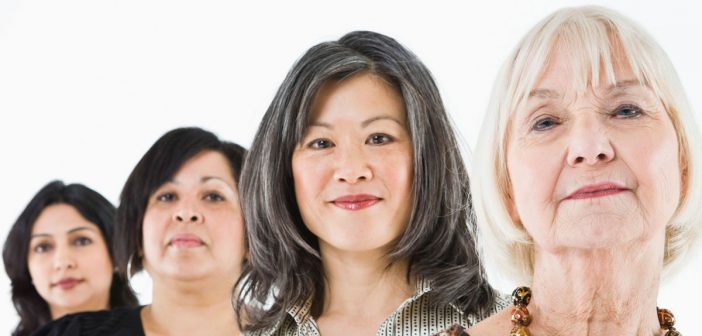I have a confession. I am drawn to Spanish soap operas. I don’t know what they are saying, but the dramatic gestures, tears and evil laughs at pivotal moments make me believe something serious is going down. This daily dose of dramaturgy motivates me to learn Spanish. But, I’ll be honest – it’s not easy. When I voiced my concerns about the futility of such an endeavor to my neighbor, she said, “What do you expect? You’re too old to learn something new.”
I disagree. And this time, experts have my back. “A second language actually develops new neural pathways in the brain, makes new connections, adds flexibility,” Carol Wheeler says. “And of course, such a project has a similarly enriching effect on our world.” Not only is the exercise of learning a second language good for my emotional well-being, but it also benefits my health.
Here are four ways learning a second language says hasta la vista to declining health.
1. Improves memory
When it seems we have to surrender knowing our children’s names in order to remember the PIN for our debit card, adding new verbs to an already sometimes challenging language may seem like a recipe for linguistic disaster. But studies show learning a second language later in life is great training for memory function. “Learning – and using – a foreign language seems to improve what psychologists and neuroscientists call executive function,” contributor Mo Costandi says, adding that this refers to a hypothetical set of mental processes that enable us to vary our thoughts and behaviors from one moment to the next, depending on the task at hand.
2. Will delay the onset of Alzheimer’s.
There is no cure for Alzheimer’s and other forms of dementia. However, learning a second language is a scientifically-proven way to delay the onset. Research has found that the process of learning more than one language requires unique training, and switching between two languages requires a specific type of attention process. Scientists believe that if we exercise that section of the brain, it may delay certain types of dementia. Upon further study, alzheimers.net reported that “researchers found that those who spoke a second language delayed certain types of dementia by an average of 4.5 years.”
3. Encourages a feeling of purpose.
Few things are more unifying than wading through a new language among friends in a classroom setting. Sharing the same interest in a language is a great conversation starter, and it is the perfect excuse for getting together after class for casual socializing. But, if the classroom is too intimidating, then immerse yourself in the culture. Watch videos in your chosen language, explore the cuisine, or visit the region. A friend of mine is fascinated with Asian markets and used that exposure to bolster his lessons. Becoming familiar with the culture is a solid base for learning the language.
Related link: 3 relationships that are great for heart health
4. Acts as a springboard for learning more new things.
Today’s challenge may be learning a second language — tomorrow will be wheel-thrown pottery.
Tracking your progress through vocabulary mastery is a huge confidence-booster. And that confidence can help you explore other things. So, set new goals for yourself because exciting new adventures await!
There are many ways we can encourage brain health, but if you are looking for a satisfying and effective way to maintain your noodle (and be able to order a bowl of noodles at the food truck while doing it), learning a second language may be just the ticket for you.
This article was originally published by Silver Sage Magazine.




